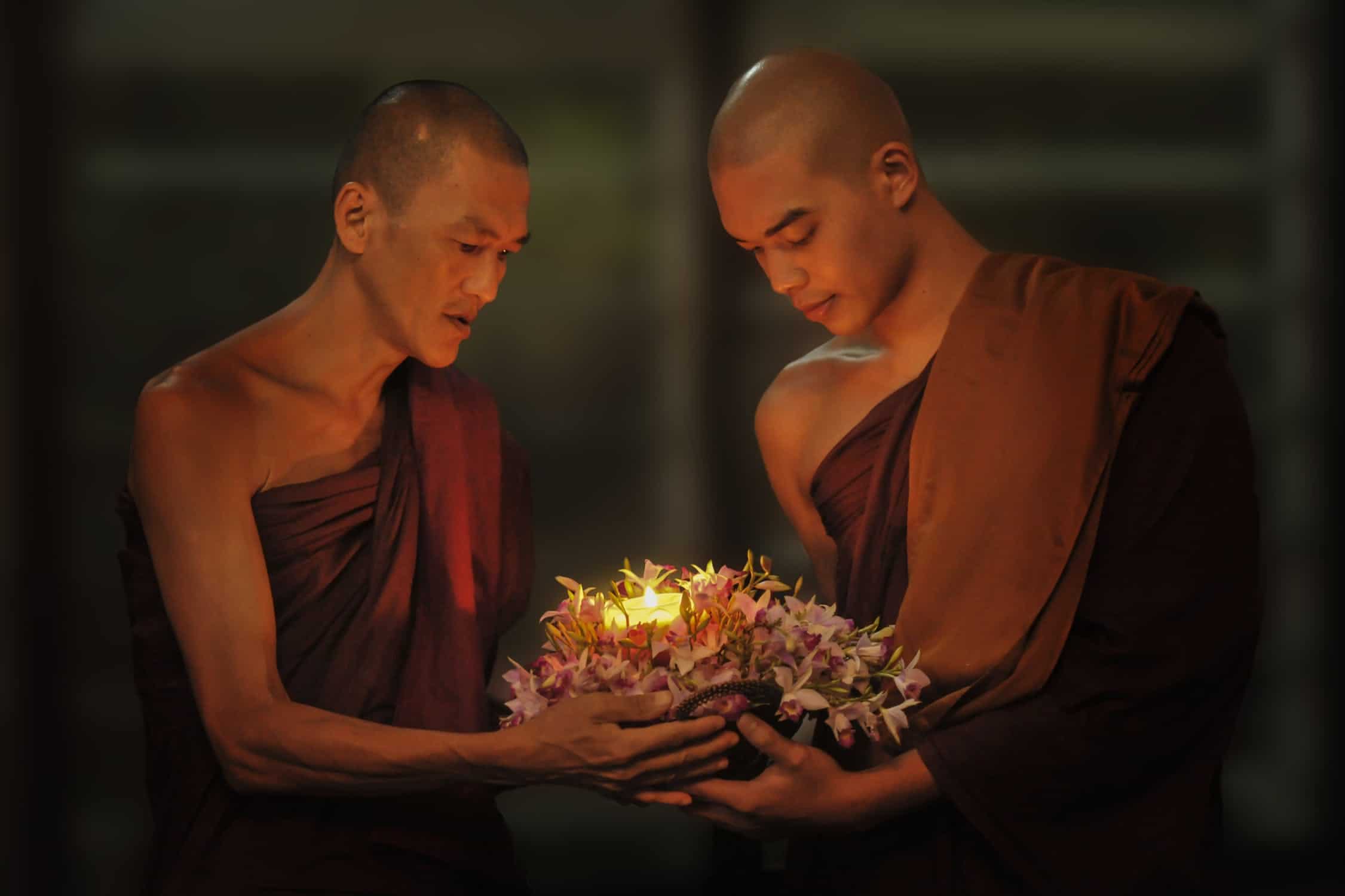The aging process can be slowed down with exercise, eating healthy, and avoiding harmful bad habits like smoking and alcohol, but when it comes down to it we are impermanent. Old age and death are unavoidable. It is important to understand what our seniors, and eventually us, go through on this journey.

Aging is a natural process of transition from one stage of life into the next; we gain valuable knowledge and experience as we go through life. Thus, our elders have much knowledge and experience to share with us. They deserve our respect.
Physical Suffering from Aging
In Buddhism, aging is considered a time of great suffering. People start to become senile and ill with age. In Siddhartha Gautama’s time, humans did not live as long as they do today. In modern society, people are living longer, but the problems faced by the growing elderly population are still the same.
In Buddhist terms, being free of suffering is not to be completely free of pain, but free of the desire for immortality, pleasure, and material goods.
You cannot completely rid yourself of pain, but change your mindset to not desire immortality or a young person’s body.
Buddha taught to remain mindful: “Though my body is sick, my mind shall not be sick”. The First Noble Truth teaches that old age is unavoidable, and must be accepted.

Mental Suffering from Aging
Two main fears that come along with old age are the nagging thoughts of wasting one’s life. It may be easy for the elderly to find themselves ruminating over what they could have done differently, or mistakes in their past. When one thinks like this, they find themselves feeling sad and bitter.
Buddhism teaches that even in old age, we should work on developing our minds and living a healthy lifestyle with integrity.
Keeping the mind busy and fulfilled can help to overpower these negative thoughts. With all the suffering that comes along with aging, senior citizens deserve care, support, and respect.
Changing Role of the Elderly in Society
As our society is changing, so is the role of the older population.
Previously, it was more common for grandparents to live with their children and take care of their grandchildren, which provided them with a sense of being needed and helpful to the family unit.
Unfortunately, today the elderly can be forgotten about and viewed as a time-consuming or financial burden on the family. Some senior citizens keep working or volunteering in their old age, but not all physically can or want to. Also, there is less of an emphasis on respect and learning from our elders’ wisdom.
Duty to Care for Aging Parents
“Having supported me, I will support them in return” – Buddha, regarding children and their parents.
Youth should try to care for their parents to the best of their abilities emotionally, financially, and physically.
In today’s society, it is not always practical to be able to personally attend to all the needs of our aging parents. For instance, using a service like Living Well’s senior housement placement services can help you navigate the journey of choosing a senior housing option that will respect your parent’s wishes.
This should not be seen as an option for children to rid themselves of their parents; children still have the responsibility to check in with their parents and assure their wellbeing both mentally and physically.
Showing Reverence Towards Elders
Filial piety is a virtue in Buddhism that encompasses respect for parents, elders, and ancestors. These are people that have important wisdom and unique perspectives on life that we can learn from. Listening to our elders helps them feel respected and revered. They have taken care of us, and deserve the same in return.

